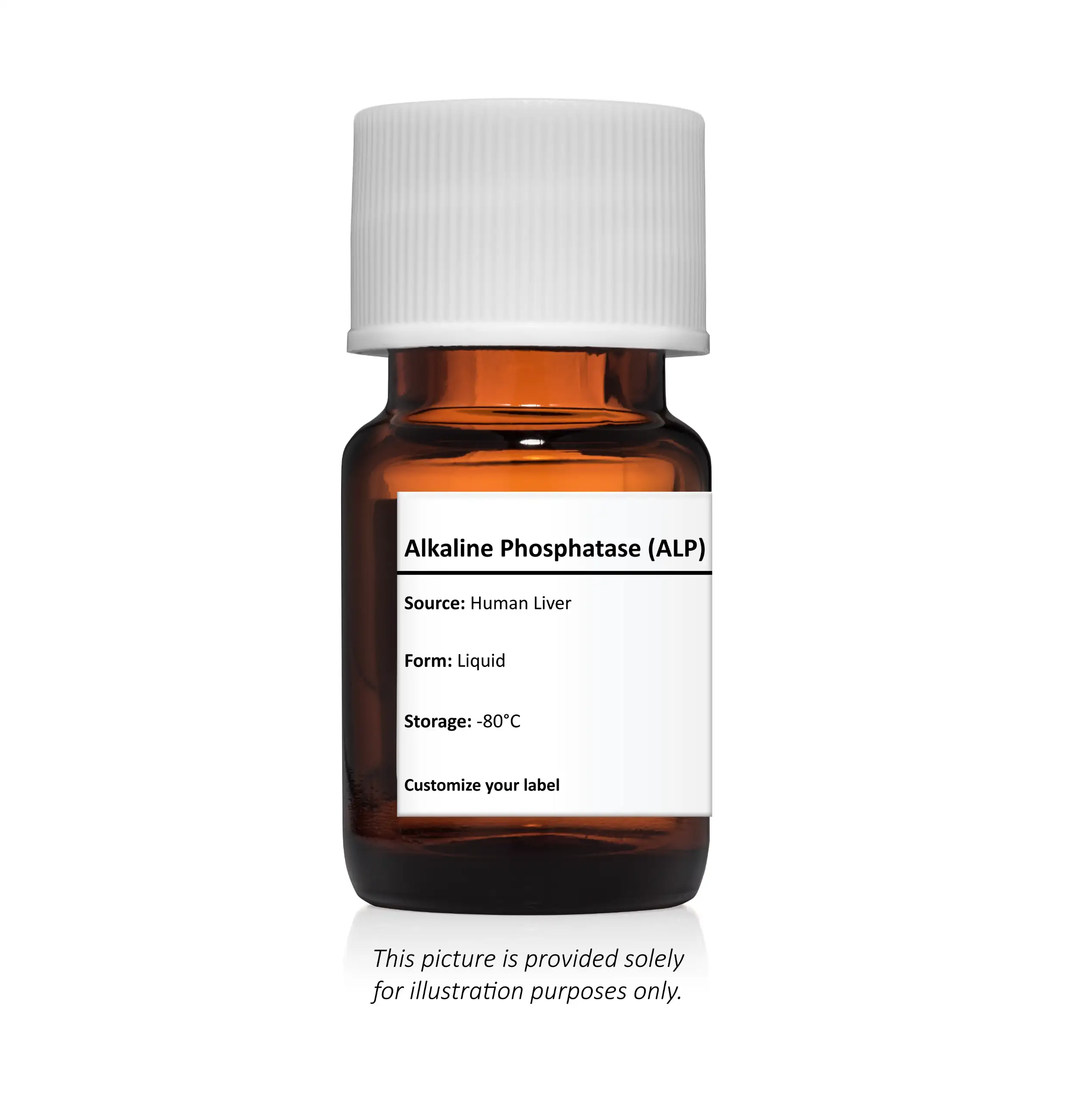Alkaline Phosphatase (ALP)
Alkaline phosphatase (ALP) is a ubiquitous enzyme found in almost every tissue in the body and has a variety of physiological roles as well as functional applications.
| Product Specifications | |
|---|---|
| Source | Human Plasma |
| Form | Liquid |
| Purity | Partially Purified |
| Storage | -80°C |

Alkaline phosphatase (ALP) is a ubiquitous enzyme found in almost every tissue in the body and has a variety of physiological roles as well as functional applications. ALP is a non-specific enzyme which catalyzes the hydrolysis of a wide range of phosphate esters. Independent of ALP’s roles in clinical diagnostics, alkaline phosphatase is one of the most common enzymes used in chromogenic assays. This is due to a very convenient substrate (p-nitrophenylphosphate) that is essentially colorless, but when the phosphate ester is hydrolyzed by ALP, the bright yellow p-nitrophenolate is formed. Even though ALP can be found in nearly every tissue in the body, the most clinically relevant forms come from liver, bone, intestine and placenta. The predominant form of ALP in the serum of healthy adults is from liver, the next most predominant form is from bone. Therefore, the elevation of the liver form of alkaline phosphatase is often due to liver pathologies, and likewise elevation of the bone form often indicates a bone pathology such as Paget’s disease. However, elevated ALP can be due to non-specific causes and does not always indicate serious disease. Nevertheless, alkaline phosphatase is a very useful serum marker, with wide applications from diagnosing hepatoma to predicting mortality in dialysis patients. Please visit www.aaltoscientific.com for more information.
